With a brief look at some notables along the road, Chang Terhune’s Music Mondays aims to shed light on both new and old(er) music over a wide spectrum of sound (and vision). This week: Cabaret Voltaire—one of the most influential bands of the last 50 years who rivaled their heroes The Velvet Underground for how many bands they inspired despite their underground notoriety.
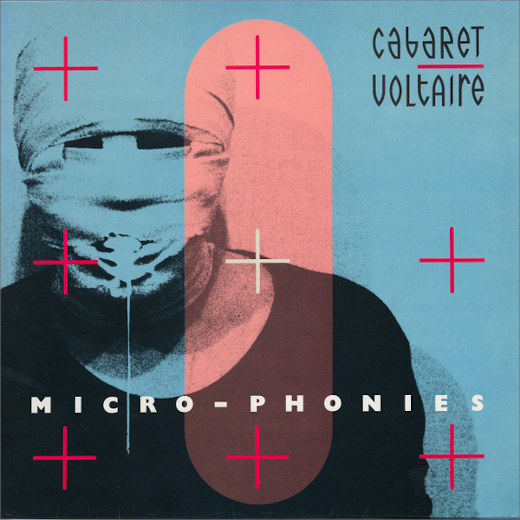
The evolution of techno
It’s my birthday today so I’d like to talk about three of my favorite albums and all by the same band: Cabaret Voltaire.
If you’ve read any of my reviews, articles and interviews (with Stephen Mallinder aka Mal, surviving member) then my love of Cabaret Voltaire (heretofore referred to as CV for brevity) is no secret nor should it be. One of the most influential bands of the last 50 years who rivaled their heroes The Velvet Underground for how many bands they inspired despite their underground notoriety. A duo once founding member Chris Watson departed after their 2×45 LP (EMI/Virgin), CV made some of their most memorable music during the early 1980s, their industrial disco era. This was showcased in the albums The Crackdown, Micro-Phonies, The Covenant, The Sword, and the Arm of The Lord and Code (EMI/Virgin). They had a huge hit with “Sensoria” from Micro-Phonies (EMI/Virgin) and the accompanying video which is in the permanent collection of the Museum of Modern Art among other places. Here’s a refresher for you:
By the late 1980s (a mere six years after Micro-Phonies was released) the band had largely shed their industrial, brutalist club tunes for the emerging sounds of house and techno. This was the era when they went to Chicago to collaborate with Ministry’s Al Jorgensen (who was himself at the time immersing himself in hardcore punk, metal and classic industrial) the resulting Acid Horse EP No Name No Slogan (WaxTrax!) is uneven, weak in places where no doubt the expectations of each party failed to meet on a single coherent sound. It can’t have been easy for either party to be looking at other expecting music they’d already made to be made again. Yet it must’ve been fascinating for them to go west, as it were, looking for news sounds only to find that many of the musicians they were looking for knew their music already as an inspiration.
But by this time CV itself was coming apart from the inside. They’d amassed a large debt following underwhelming album sales and poor promotions from the label EMI. Sadly these efforts produced less and less sales which led to greater debt to EMI and eventually the band was dumped by the label.
Which is where the albums I’m thinking of today come in. Following their being dropped by EMI, in 1991 Mute records signed the band for re-releases of their older material plus new material which would become the final de facto CV albums. When Stephen Mallinder sang his last on Body and Soul (Les Disques Du Crepuscule) the ensuing releases—Plasticity, International Language and The Conversations—became instrumental albums.
It’s also arguably when CV became mostly Richard H. Kirk. Following the release of The Conversation (Mute) in 1994, Mal would move to Australia the following year where he would stay for a time to attend graduate university and put out solo records on a sparse schedule. Conversely this is when Kirk began perhaps his best period of productivity becoming insanely prolific for the following 5-10 years. Each of the “techno” CV albums bears more and more resemblance to Kirk’s solo work until the final track of The Conversation—“Exterminating Angel (outro)”—which could easily be a Kirk solo track from one of his many pseudonyms.
To be honest this isn’t necessarily a bad thing or unheard of. Many bands begin or end as one individual handling all duties in writing and recording new material while also producing their own solo works. With these CV albums it’s clear Mal’s influence wains while Kirk’s grows until it becomes a Cabaret Voltaire album in name only as with the final CV albums recorded solely by Kirk himself without Mal’s input.
But to the albums themselves.
While they were recorded in a short period of time (3 years elapsed from first to last) and they have many similarities each possesses its own sound and feel. The first is Plasticity (Plastex/Mute) takes off from the last notes of Body and Soul, working a deep techno edge while including and building songs around samples taken from TV and film (Kirk’s method seemed to be mixing the telly and recording as he channel surfed like a true dadaist). “Low Cool” opens with samples from an experimental documentary about API gangs in LA before evolving into a loping funk workout that still holds its weight after thirty years. “From Another Source” is an ambient techno masterpiece showcasing the band’s masterful mixture of disparate styles and influences. The whole album still sounds as fresh as if it were released today. Here’s the full album from Youtube:
International Language had long been my least favorite of the three albums for no reason other than I thought it wack. Yet recent listens have changed that. It’s a funkier, faster album than its predecessor with less ambient structure and more dance oriented sounds. There’s a playful element to a lot of the tracks though many go hard as well. It’s also where Kirk et al mixed one track into the next for a continuous mix feel that he’d use often over the years. “Everything is True” opens the album with swirling synths and vocal samples that coalesce into a synth funk hybrid, very reminiscent of Kirk’s Sweet Exorcist collaboration with DJ Parrot Clonk’s Coming (Warp). “Radical Chic” barnstorms in on housey keys and a thumping beat, female vocal samples as Angela Davis rails against the powers that be in lengthy repeated loops. “Taxi Mutant” samples the band’s earlier soundtrack to the super underground film “Johnny Yes No” (Doublevision), updating it with synths and drum machine. My favorite track on the album “The Root” samples a Tangerine Dream track over heavy 808 drums powering a driving, eternal grooving bass line through the track. It’s probably no wonder I listen to the album once a day sometimes and “The Root” 3-5 times alone.
The Conversation (Mute) is the final of the CV techno albums and to me is simultaneously the most mysterious and most like Kirk’s solo works. It was released as a two disc CD with one disc being the first eight tracks. The second disc contains two tracks: “Project 80” and “Exterminating Angel (outro).” In many ways it’s peak ambient techno while having more sharp edges than an album of that genre generally does. Samples are used more often to form the rhythmic basis of tracks, relying on found sounds to create the atmosphere of a Cabaret Voltaire track similarly to their early days of teenage bedsit tape experiments.
Each song folds into the next more seamlessly than other albums though that’s used to excellent effect on International Language (Kirk would go on to employ this a great deal through many of his solo works). “Exterminating Angel (Intro)” warbles and loops into being, eventually turning to a dark edged soundscape throbbing with danger. This segues into “Brutal But Clean’s” dark funk jam, like the score of a cyber-heist flick thirty years too soon. This in turn segues into “The Message (An Original Hollywood Theme)” then “Let’s Start” which may be as close to a peppy party track as CV ever came. “Project 80” is a single fifty-three minute track (if you know my work as Cathode Ray Tube, you’ll understand when I say that’s both a daunting and intoxicating number lol!) that’s mainly a long form synth jam with extensive use of samples namely a good chunk of “Altered States.”
Because I’m ostensibly human, I want to categorize these albums from least to most favorite and what’s funny is I simply can’t anymore. As I wrote above, I did at one time rank International Language last, The Conversation second and Plasticity first but upon full consideration, they’re each great and each holds their own unique place in the Cabaret Voltaire discography as well as the evolution of techno.
It’s also worth mentioning that the artwork for each album was created by The Designers Republic who would go on to do some of the most famous album covers of the 90s and 00s.
Shadow of Fear is available on Mute. [Bandcamp]






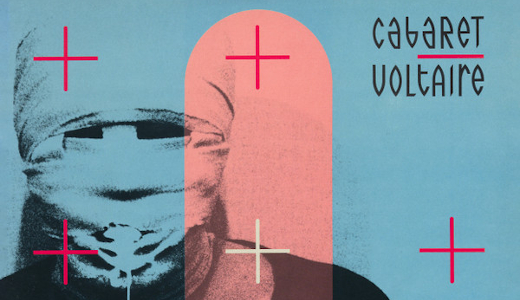




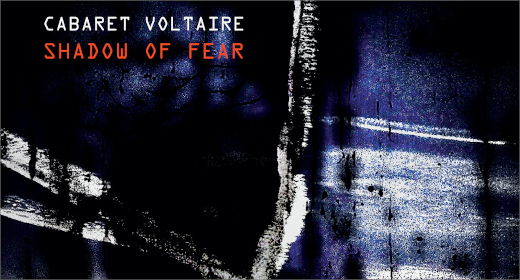
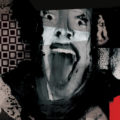


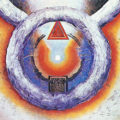
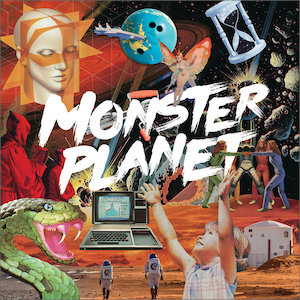

![Ndorfik & madebyitself :: Solos EP (People Can Listen) — [concise]](https://igloomag.com/wp/wp-content/uploads/2025/04/ndorfik-madebyitself-solos_feat-75x75.jpg)








